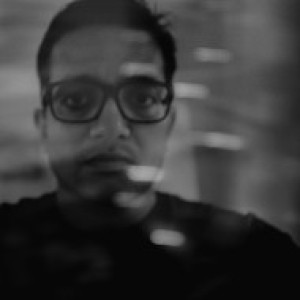Finding your way
This is a very precise map of Pondicherry. It made for a great day as we navigated through the neat streets guided solely by it.
What follows is a bit lengthy, so please feel free to skip it.
About three years back I had picked it up. I read it slowly, just a bit each day over a couple of months. I wanted to complete it. It's sheer size alone would arouse curiosity. Atlas Shrugged is the 13th largest novel of all time!
However, it's main idea doesn't require a gigantic pile of words to elucidate. After a while, it becomes a bit repetitive and forceful, perhaps ignorantly contradicting the idea of freedom it tries to propagate. And when Ayn Rand ends it all with, "And I mean it", one can't help but laugh just a little. Truth has its way of making its presence felt which has nothing to do with how loudly it is shouted out. I like the way, though, she sums up her entire philosophy:
"My philosophy, in essence, is the concept of man as a heroic being, with his own happiness as the moral purpose of his life, with productive achievement as his noblest activity, and reason as his only absolute."
The journey of the book was to explore this idea across a variety of situations which would challenge and test it to it's limits, in order to justify it's stand as the way to live. But that wasn't possible since the characters weren't real enough. They were built around rather rigid stereotypes. And this is one the main shortcomings of the book. In effect, it denies the complexity of man's nature, to unravel which, a lifetime alone may not be enough. Instead it imposes an inflexible idea almost ignoring a complex underlying reality. One cannot help but observe hints of extremism and dogma; living under such influences one repeatedly encounters gaps between rigid "shoulds" and the truth, often denying the latter which leads to a lifetime of misery. This book loses credibility for overly simplifying matters by painting mere caricatures (extreme good or extreme evil) to make its point, rather than strong human characters.
Here's a small quote from it:
"The good, say the mystics of spirit, is God, a being whose only definition is that he is beyond man's power to conceive- a definition that invalidates man's consciousness and nullifies his concepts of existence. Man's mind, say the mystics of spirit, must be subordinated to the will of God. Man's standard of value, say the mystics of spirit, is the pleasure of God, whose standards are beyond man's power of comprehension and must be accepted on faith. The purpose of man's life is to become an abject zombie who serves a purpose he does not know, for reasons he is not to question."
Again, she picks up the most extreme among spiritualists to deny the idea of spirituality completely, thereby relinquishing any responsbility of probing matters further. The simple irony, that we observe over and over again, is that there isn't a whole lot of difference between staunch atheists and religious fanatics. There's a whole larger spectrum of possibility and taking into account the complexity that follows when these are brought into the picture is essential when trying to propagate an all-pervading philosophy.
Here's an ironical, but hardly unexpected situation William F. Buckley mentions in his obituary on Ayn Rand:
"Miss Rand's most memorable personal claim (if you don't count the one about her being the next greatest philosopher after Aristotle) was that since formulating her philosophy of "objectivism," she had never experienced any emotion for which she could not fully account. And then one day, a dozen years ago, she was at a small dinner, the host of which was Henry Hazlitt, the libertarian economist, the other guest being Ludwig von Mises, the grand master of the Austrian school of anti-statist economics. Miss Rand was going on about something or other, at which point Mises told her to be quiet, that she was being very foolish. The lady who could account for all her emotions at that point burst out into tears, and complained: "You are treating me like a poor ignorant little Jewish girl!" Mr. Hazlitt, attempting to bring serenity to his table, leaned over and said, "There there, Ayn, that isn't at all what Ludwig was suggesting." But this attempt at conciliation was ruined when Mises jumped up and said: "That iss eggsactly what you ahrr!" Since both participants were Jewish, this was not a racist slur."
In some circles, the book does find strong appreciation. But I do hope, this support for it doesn't translate into believing extremist views of absolute good and evil. I also hope it doesn't make us over-eager about rushing into quick conclusions thereby oversimplifying everything. But most of all, I hope it doesn't implicitly undermine the importance and beauty of the journey in a quest for truth.
- 0
- 0
- Nikon D90
- 1/100
- f/1.8
- 50mm
- 640

Comments
Sign in or get an account to comment.


